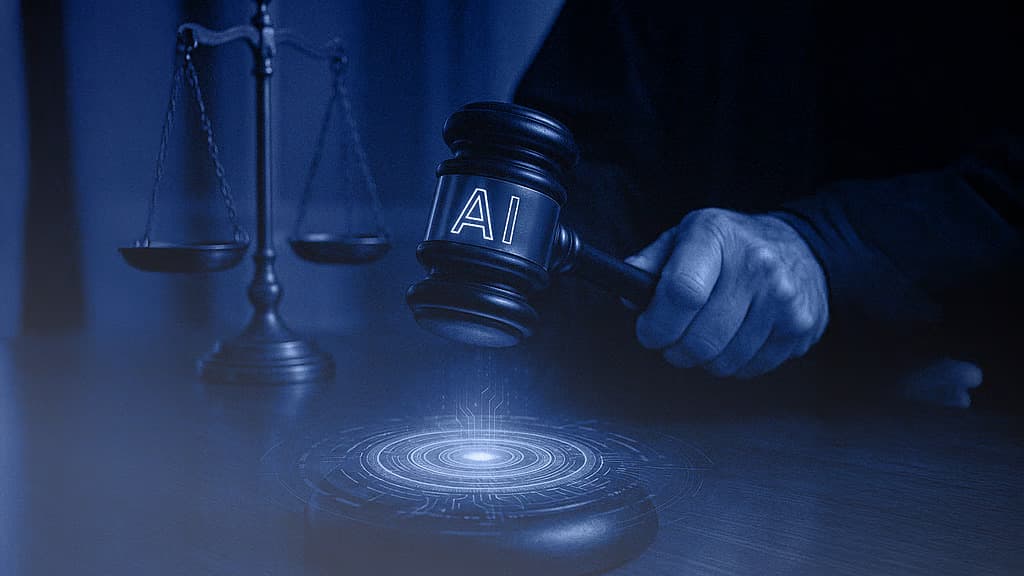
How AI is Revolutionizing Litigation Practice for Legal Professionals
AI is transforming litigation -- boosting efficiency and strategy while challenging ethical boundaries.
Artificial Intelligence (AI) is reshaping the landscape of litigation practice, offering legal professionals innovative tools to enhance efficiency, accuracy and strategic decision-making. However, as with any technological advancement, the integration of AI into legal practice presents both opportunities and challenges that must be carefully navigated.
The Rise of AI in Legal Practice
AI's primary contribution to litigation is its ability to handle repetitive and time-consuming tasks. Tools like Jurisphere have been instrumental in assisting lawyers with document review, legal research and case preparation. By automating routine document processing tasks, AI enables lawyers to focus on higher-value activities that require human expertise and judgment.
Similarly, AMICUS, developed by CaseMine, utilises generative AI to produce concise and clear summaries of legal documents, answer complex legal queries, and generate legal drafts instantaneously. This capability is particularly beneficial in jurisdictions where courts pronounce thousands of judgments daily, ensuring that legal professionals have timely access to relevant information.
Enhancing Efficiency and Accuracy
AI's capacity to analyse vast amounts of data quickly and accurately has revolutionised legal research. Traditional methods of legal research involved manually sifting through numerous case laws and statutes, a process that was both time-consuming and prone to human error. AI tools can now perform these tasks in a fraction of the time, providing legal professionals with accurate and comprehensive information.
Moreover, AI's predictive analytics capabilities are being harnessed to forecast case outcomes. By analyzing historical data and identifying patterns, AI can provide insights into the likely success of a case, aiding lawyers in formulating effective strategies.
Global Adoption of AI in Litigation
The adoption of AI in litigation is gaining momentum worldwide. In the United States, a 2024 survey by the American Bar Association revealed that 35% of law firms were using generative AI tools, although only 12% provided formal training on ethical AI usage. In the UK, law firms like Allen & Overy and Clifford Chance have integrated AI tools for contract review and litigation support. Australia, Canada, and Singapore have also seen rapid uptake of AI, with several courts experimenting with AI-assisted document management and e-discovery systems.
In India, the integration of AI into litigation is gaining momentum. Initiatives like Jupitice are making strides in digitising court processes and enhancing access to justice. These developments are particularly significant in a country where the judicial system faces challenges related to case backlogs and delays.
Ethical and Procedural Risks
While AI offers numerous benefits, its integration into legal practice is not without risks. One major concern is the phenomenon known as “AI hallucinations,” where AI systems generate plausible yet inaccurate information. If unchecked, reliance on such outputs can lead to legal missteps, procedural errors, or even professional sanctions.
Another risk is bias. AI systems trained on historical data can inadvertently perpetuate systemic biases present in past judgments. Ensuring fairness and transparency requires constant oversight and ethical guidelines governing AI use in legal practice.
Data security and confidentiality are additional concerns. Legal matters often involve sensitive client information, and AI systems must comply with strict data protection protocols. Breaches or misuse can have significant professional and legal repercussions.
Case Studies of AI in Litigation
United States: Eudia's AI-Augmented Law Firm
In Arizona, the legal tech startup Eudia has launched an AI-augmented law firm, Eudia Counsel, under the state's relaxed alternative business structure regulations. This innovative model combines proprietary AI tools with human legal expertise to serve corporate clients in areas like contracting and M&A diligence. Clients already using Eudia’s platform include major organizations like DHL, Duracell, Cargill, Intuit, Stripe, and the US government. The Arizona Supreme Court approved the law firm’s formation in June 2025, marking a significant step in the integration of AI into legal practice.
United Kingdom: AI-Generated Legal Materials Under Scrutiny
In the UK, recent court decisions have highlighted the risks associated with relying on AI-generated legal materials without appropriate verification. In the case of R v The London Borough of Haringey, the High Court dismissed a claim after the claimant relied on AI-generated content that was not properly verified. This incident underscores the importance of human oversight in ensuring the accuracy and reliability of AI-generated legal materials.
Australia: Fair Work Commission Warns Against AI Use
In Australia, the Fair Work Commission issued a warning against relying on generative AI tools such as ChatGPT for legal guidance. A Sydney man filed an unfair dismissal claim based on AI-generated advice, which lacked required legal grounds and demonstrated poor understanding of the Fair Work Act. The Commission dismissed the claim, emphasizing the need for professional legal advice and cautioning against the use of AI in legal filings.
India: Jupitice's Digital Transformation
In India, Jupitice is leading the way in digitizing court processes and enhancing access to justice. By integrating AI into the judicial system, Jupitice aims to streamline case management, reduce backlogs, and provide faster, more transparent access to justice. This initiative is particularly significant in a country where the judicial system faces challenges related to case delays and inefficiencies.
Conclusion
AI is undeniably transforming litigation practice, offering opportunities to enhance efficiency and accuracy. However, it is crucial for legal professionals to approach AI integration with caution, ensuring that ethical standards and professional integrity remain at the forefront. As we navigate this technological evolution, continuous education and vigilance will be key to harnessing AI's full potential while mitigating its risks.
Sunil Ambalavelil is the Chairman of Kaden Boriss, a law firm known for its innovative approach to legal practice and commitment to ethical standards in the use of technology.
For any enquiries please fill out this form, or contact info@thelawreporters.com and Follow The Law Reporters on WhatsApp Channels